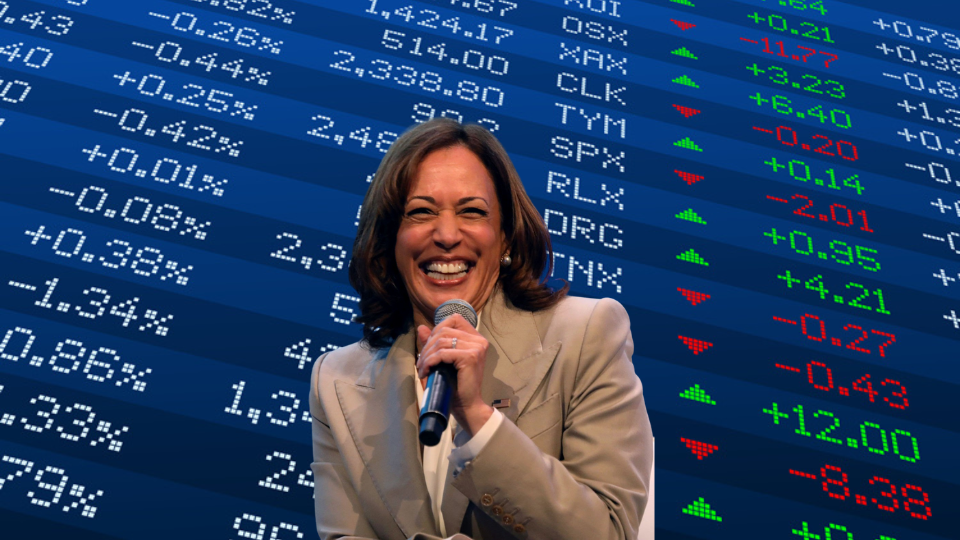A Kamala Harris presidency could bring both opportunities and challenges to the U.S. economy, given her political background and policy positions. Here’s a balanced overview of the potential positive and negative implications of her economic policies.
Potential Positive Impacts
Focus on Income Equality and Social Justice
Kamala Harris has long been an advocate for policies that promote income equality and social justice. Her presidency could see significant strides in these areas:
- Increased Minimum Wage: Harris has historically supported raising the minimum wage, which could boost consumer spending by increasing disposable income for low-income workers. This increase in spending can stimulate local economies and reduce poverty levels.
- Paid Family Leave: Implementing policies for paid family leave could improve work-life balance for many Americans. By allowing workers to care for their families without sacrificing their jobs, productivity and workforce participation could see a significant boost.
Investment in Infrastructure and Green Energy
Harris’s commitment to infrastructure and renewable energy projects could lead to transformative changes in the economy:
- Infrastructure Projects: Harris may push for significant investment in infrastructure, including transportation and communication. These projects could create jobs, stimulate economic growth, and modernize essential services.
- Green Energy Initiatives: Emphasizing renewable energy could position the U.S. as a leader in clean technology. By reducing dependence on fossil fuels, the U.S. could create new industries and significantly contribute to global efforts to combat climate change.
Healthcare Reform
- Affordable Healthcare Access: Harris supports expanding healthcare access, which could reduce healthcare costs for individuals and increase economic security for families. A healthier population could translate to a more productive workforce.
Education and Workforce Development
Investing in education and training is crucial for a competitive economy, and Harris has plans to address these needs:
- Investment in Education: Expanding access to quality education and vocational training could enhance workforce skills, aligning them with evolving industry needs and boosting economic competitiveness. By preparing workers for future jobs, Harris aims to bridge the skills gap that many industries face.
Support for Small Businesses
Small businesses are the backbone of the U.S. economy, and Harris has plans to support them:
- Incentives and Grants: Harris may implement policies to support small businesses through tax incentives and grants, fostering innovation and entrepreneurship. These measures could help small businesses thrive in a rapidly changing economic landscape.
Potential Negative Impacts
While a Kamala Harris presidency offers many positive changes, there are also potential drawbacks that could impact the economy:
Increased Taxes and Regulatory Burdens
Funding ambitious programs may come with increased financial demands:
- Higher Corporate Taxes: To fund social programs and infrastructure projects, Harris might increase corporate taxes. This could discourage investment, leading to potential job losses and affecting business growth.
- Stricter Regulations: Enhanced regulations, especially in the energy sector, could increase operational costs for businesses, affecting profitability and economic growth. Balancing environmental goals with economic realities will be crucial.
Inflationary Pressures
Government spending must be carefully managed to avoid inflation:
- Government Spending: Increased government spending on social programs and infrastructure could contribute to inflation, affecting the cost of living and purchasing power. Effective fiscal policies will be essential to prevent economic instability.
Impact on Traditional Energy Sectors
Transitioning to renewable energy may pose challenges for traditional industries:
- Phasing Out Fossil Fuels: Transitioning away from fossil fuels could lead to job losses in the traditional energy sector and economic disruption in regions dependent on coal, oil, and gas industries. Strategic support for affected communities will be vital.
Trade and International Relations
Harris’s trade policies could reshape global business dynamics:
- Trade Policies: A more progressive stance on trade might lead to stricter trade agreements, potentially affecting international business relationships and increasing costs for imported goods. Balancing protectionist measures with global cooperation will be key.
Potential for Increased National Debt
Expansive programs require careful financial planning:
- Expansive Programs: Implementing broad social and economic programs may increase the national debt if not balanced with appropriate fiscal policies, potentially leading to long-term economic challenges. Responsible budgeting will be essential to maintain fiscal health.
Additional Reading and Sources
Increased Minimum Wage and Income Equality
- Kamala Harris on Minimum Wage:
- Economic Impact of Minimum Wage Increase:
Paid Family Leave
- Kamala Harris’s Paid Family Leave Policy:
- Impact on Economy:
Investment in Infrastructure and Green Energy
- Kamala Harris on Infrastructure and Green Energy:
- Economic Impact of Green Energy:
Healthcare Reform
- Kamala Harris’s Healthcare Policies:
- Economic Impact of Healthcare Access:
Education and Workforce Development
- Kamala Harris’s Education Policy:
- Economic Impact of Education:
Support for Small Businesses
- Kamala Harris on Small Business Support:
- Economic Impact of Small Business Support:
Increased Taxes and Regulatory Burdens
- Kamala Harris on Taxes and Regulations:
- Economic Impact of Increased Taxes:
Inflationary Pressures
- Kamala Harris on Fiscal Policies:
- Economic Impact of Government Spending:
Impact on Traditional Energy Sectors
- Kamala Harris on Energy Transition:
- Economic Impact of Phasing Out Fossil Fuels:
Trade and International Relations
- Kamala Harris on Trade Policies:
- Economic Impact of Trade Policies:
Potential for Increased National Debt
- Kamala Harris on National Debt:
- Economic Impact of National Debt:
- Congressional Budget Office: National Debt Implications
- [World Bank: The Effects of National Debt on Economic Growth](https://www.worldbank.org/en/news/feature/2018/07/26/debt-ris





